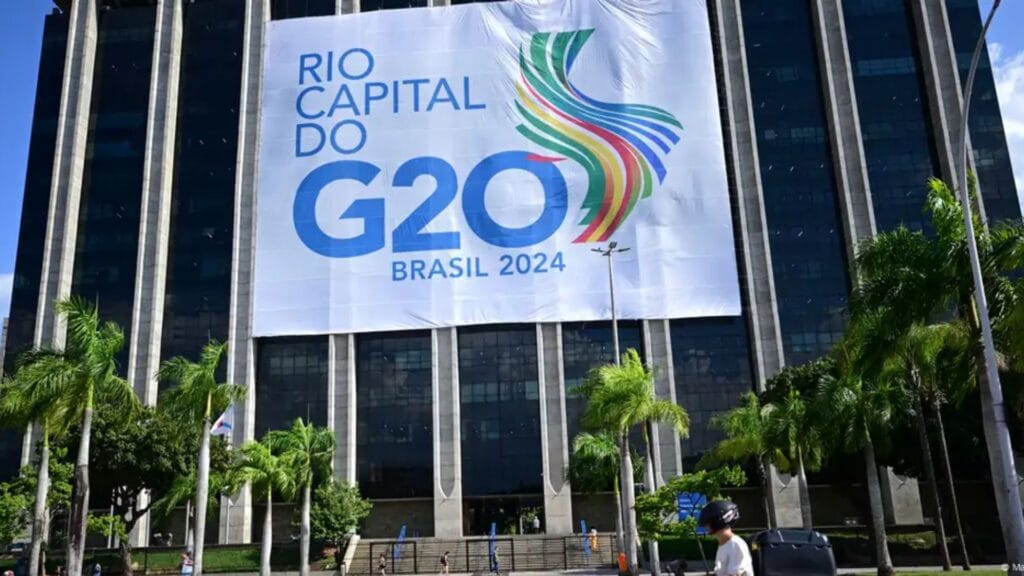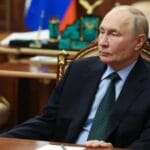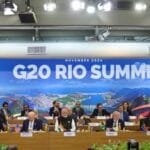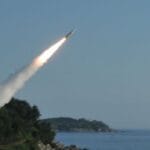The G20 summit in Rio de Janeiro has sparked conversations around its toned-down stance on Russia’s war in Ukraine. Unlike last year’s declaration in New Delhi, which directly criticized Moscow’s actions, this year’s communiqué simply mentions the “human suffering” caused by the war and emphasizes a vague aspiration for a “comprehensive, just, and durable peace.” Does this signal a shift in priorities for global leaders?

A Softer Tone on Russia’s Role in Ukraine
The G20 statement sidestepped full-scale criticism of Russia’s actions, including attacks on Ukraine’s civilian infrastructure and its nuclear threat. In total, it pointed out just the “negative added impacts of the war,” an unintended change from last year’s seven paragraphs dedicated to Ukraine. This subsidence has excited particular interest among Western nations that have been advocating on behalf of Ukraine.
Why this change? Some analysts suggest it reflects growing global fatigue over the prolonged conflict. There’s also pressure from certain Western allies, as Ukraine faces calls to explore peace talks with Russia. This might be tied to fears about shifting U.S. foreign policy, particularly if Donald Trump, who has threatened to cut military aid to Ukraine, secures another term as U.S. president.
ALSO READ | G20 Summit: Another Year of Words Without Action?
Balancing Act: G20’s Internal Divisions
The watering down in the language is believed to have resulted from behind-the-scenes intense negotiations. Western nations such as the U.S., UK, and France are said to have pushed for stronger wording against Russia, especially following a massive missile and drone attack on Ukrainian civilians. However, compromising was necessitated by countries that were closer to Moscow, such as China, Russia itself, and some developing countries.
One European diplomat acknowledged, “The language is not strong enough… but nobody wanted to push too far, otherwise it would have been a fight, and there would be no statement.” Clearly, in maintaining unity among the assorted G20 member countries, the balancing act of the G20 leaders does not get easier by this ending.
READ MORE | Brazil’s First Lady Criticizes Elon Musk at G20: “Fuck You, Elon Musk”
The Broader G20 Agenda: Beyond Ukraine
While Ukraine remained a contentious topic, the Rio Summit also addressed several other pressing issues:
- Taxing the super-rich to combat inequality.
- Calls for a ceasefire in Gaza amidst ongoing tensions in the Middle East.
- Advocating for reforms in the UN Security Council, reflecting Brazil’s priorities as the host nation.
- Emphasizing the need for climate finance to scale up from billions to trillions.
However, the statement’s omission of a commitment to phase out fossil fuels drew criticism from diplomats at the COP climate conference in Baku, Azerbaijan. This shows the summit’s struggle to align on crucial issues like climate change, despite lofty ambitions.
My Take: A Diplomatic Missed Opportunity?
I think the G20 missed an opportunity to say very strongly and unitedly that there should be accountability and justice regarding conflicts that affect millions of lives. It is even more important because, even though broader issues like poverty and climate finance are important, a diluted stand on Ukraine could embolden aggressors and further weaken norms under international law.
On the other hand, someone may justify the softer tone used by saying that this might allow space for amicable negotiations that eventually bring peace. But is a peace deal worth it if it will compromise justice for Ukraine? I doubt personally that bending over backward with the motto of unity can solve more serious geopolitical tensions.
What Do You Think?
Should the G20 have taken a stronger stance on Ukraine, or was this the right move to maintain unity among its members? Let us know your thoughts in the comments below! You can also follow us on Social Media for regular updates on geopolitics and of course memes too!
Minutes by M31GlobalNews






